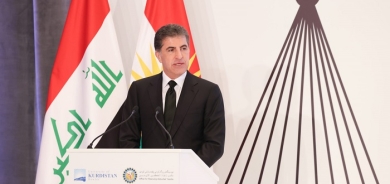Squalor and misery for refugees camped on Lesbos

Overwhelmed by the 20,000 refugees and migrants currently camped on the holiday island, authorities hastily set up a refugee registration centre Tuesday on a parched old football pitch.
The strain on the cash-strapped Greek government was plain to see: there was no shade or water as the sun beat down, and the processing equipment consisted of four office printers hooked up to a generator.
Aid workers eventually arrived to set up latrines and start handing out food and water, but it was too late for thousands who had waited here since 10:00 pm the night before.
Finally waving his registration slip, Kamal, a burly, green-eyed Iraqi, declared: "I feel like it's my birthday."
Like so many others, the former ice cream salesman has spent several miserable days stuck on this small island, waiting for a piece of paper that will allow him to travel to the mainland -- and, he hopes, to a new life somewhere else in Europe.
- 'It's misery' -
Local authorities have found it impossible to keep up with the pace of the influx, and tensions have boiled over.
Night after night, riot police at the port have struggled to control huge crowds desperately seeking to get onboard ferries to Athens after days or even weeks camping in squalor.
There are no toilets for the migrants to use, and most have been unable to find hotel rooms. Instead, hundreds of tents have sprung up in the main town Mytilene. There is litter everywhere.
"It's misery," said one man in the huge queue outside the registration centre, as his exhausted-looking wife clutched their toddler.
Aid workers said some women were barely eating or drinking, in a bid to minimise the indignity of going to the toilet outside.
"We have a lot of women who are fainting, who are weak," said Eva Jordung Nicolson, an aid worker with the Danish Red Cross, as she handed out food at the registration centre.
"When you ask them 'When did you eat last?' they say two days ago. It's not because they don't have money. They don't want to eat or drink, because they don't want to go to the toilet."
At night along the seafront, as the stars twinkle above the tents, it can feel almost as if Lesbos' usual carefree holiday mood has returned. Children laugh as their families stroll along the coast, while youngsters sit smoking and chatting outside their tents.
But tempers rise at the port as the crowds surge forward to board the ferries.
As riot officers with batons screamed at the crowds to get back on Monday night, a woman shrieked out in pain as a policeman struck her with full force across the knees. Her two small children watched in terrified silence.
- Moments of kindness -
Aside from the heavy-handed police and the squalor, migrants are also anxious to move on from an island where the daily cost of life seems inordinately expensive -- and that's after paying $1,000 (894 euros) or more to people smugglers for the perilous sea journey from Turkey.
The prices of everything from bottles of water to an hour's charging of a mobile phone at a cafe seem extortionate, they say, accusing locals of trying to cash in on their plight.
"I understand that Greece is in a bad situation," said Khalil Ibrahim, a 40-year-old Kurd from the Syrian city of Raqa.
"But they should not be using us like this."
Rami Amer, another Syrian, shook as he recounted how two local men had tried to rob him at gunpoint on Monday.
Despite this, he insisted that Lesbos was "an amazing place with friendly people".
There were moments of kindness every day, he said, like the restaurant-owner who had cut the prices when he saw that Amer and his friends were refugees.
Kamal, however, said he was glad he had decided not to bring his wife and two children on this journey, and that they were not here to witness the misery on Lesbos -- even if it meant leaving them in Baghdad.
"My boy is only five months old. He would have died on this journey," he said.
But the agony of leaving them behind is not easy to forget either.
"Every time I speak to them on the phone, I cry," he said.
AFP















